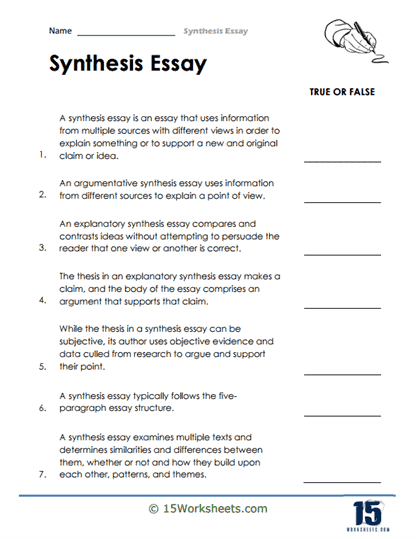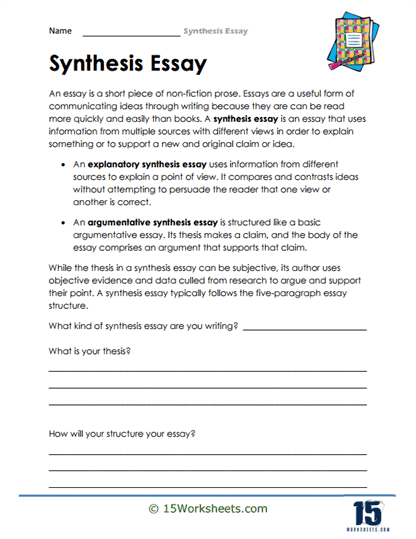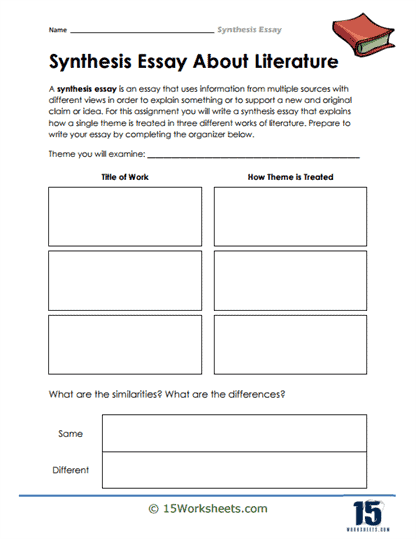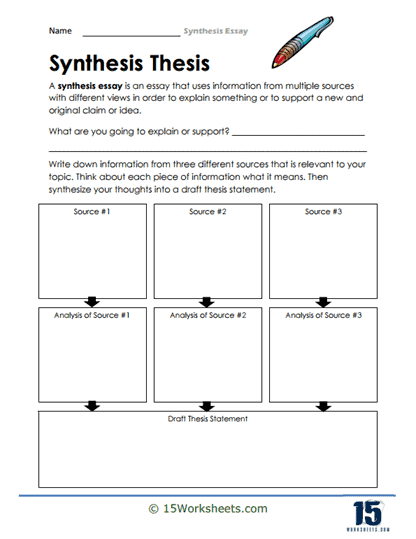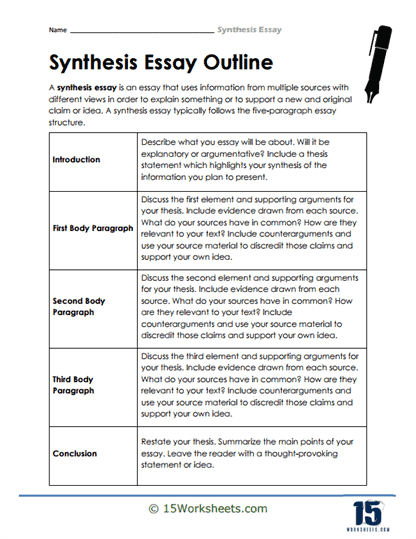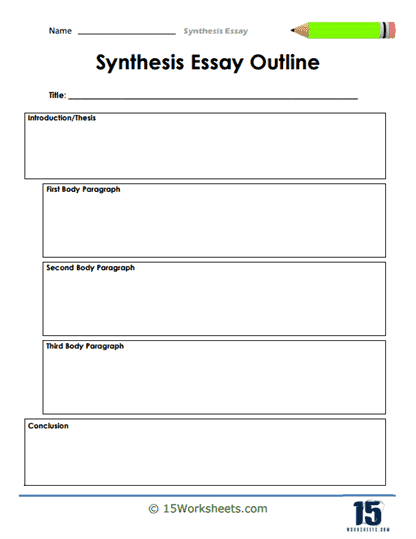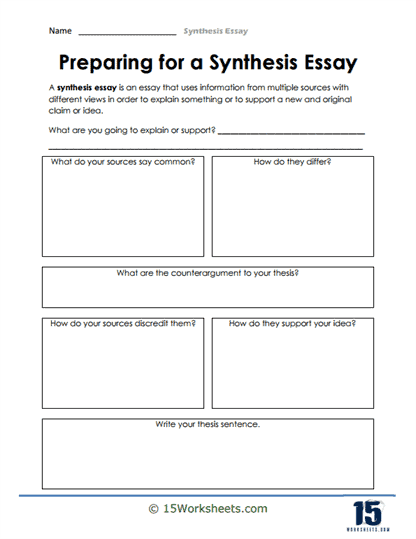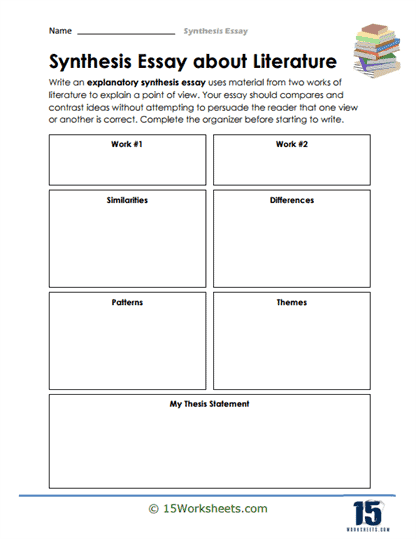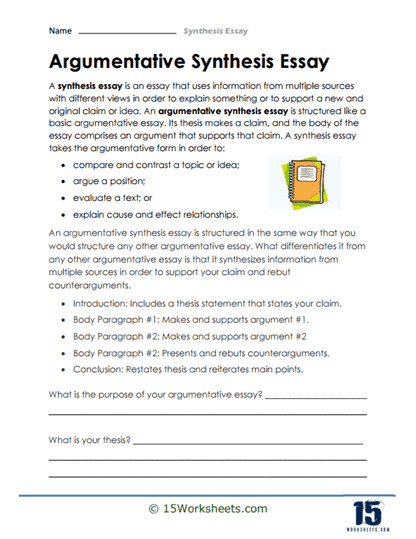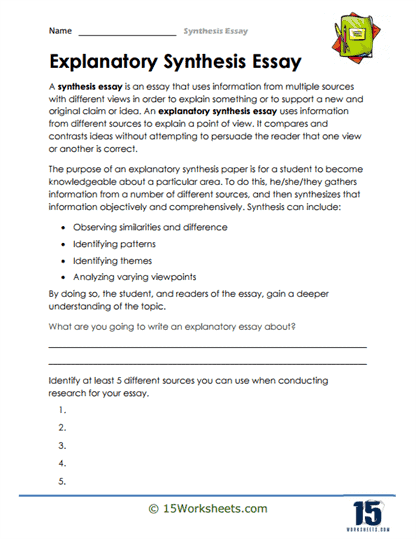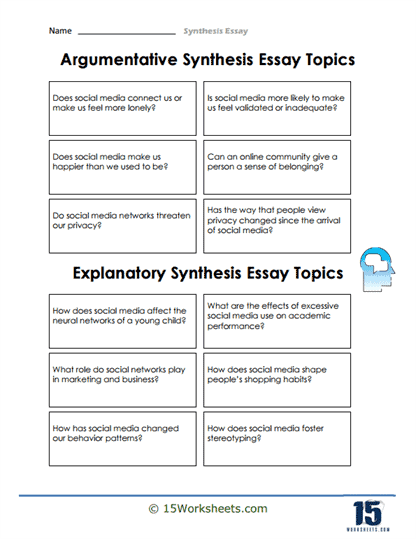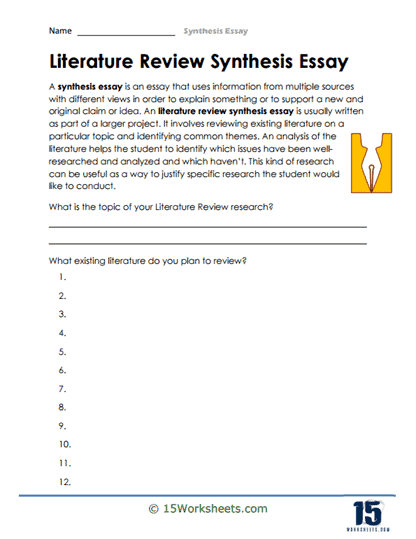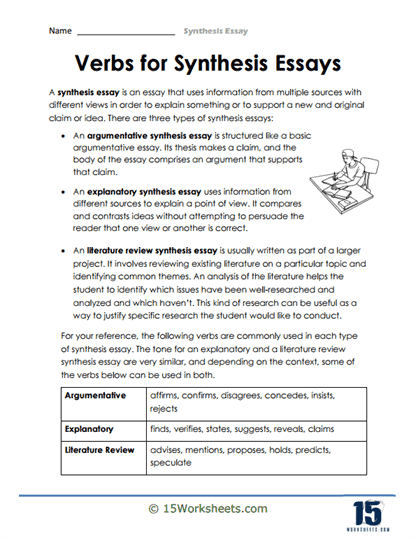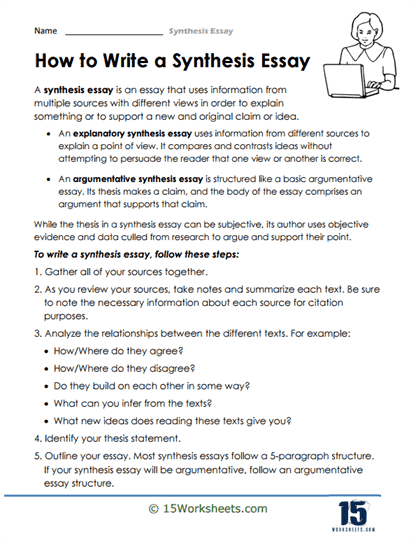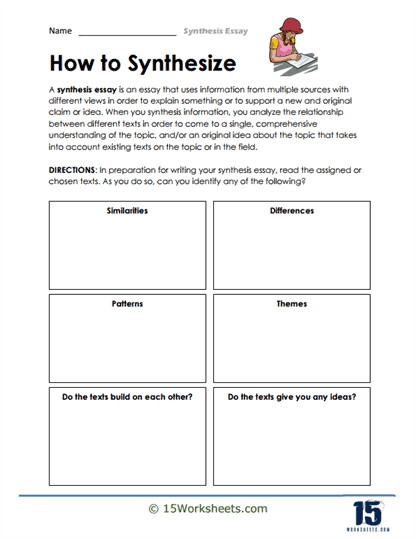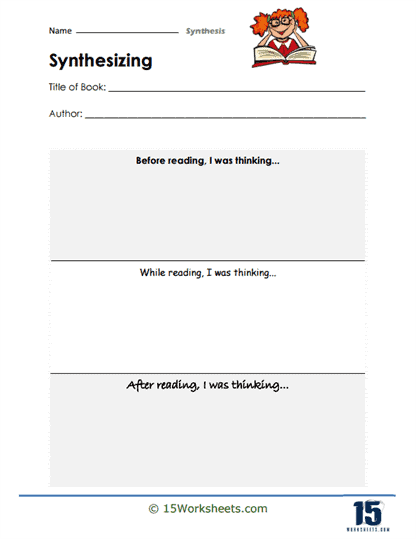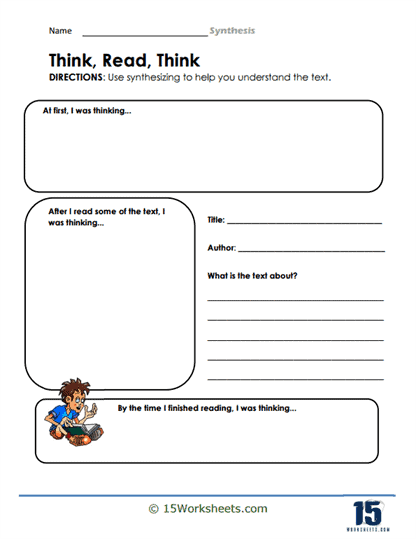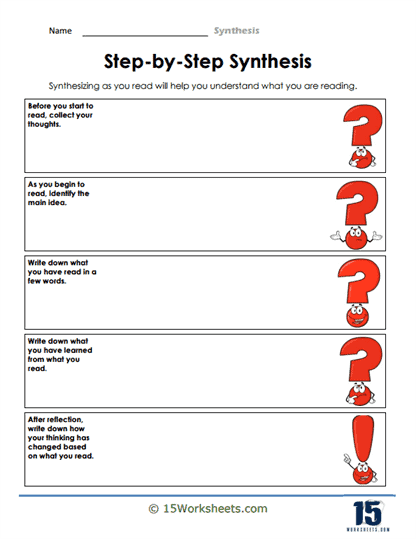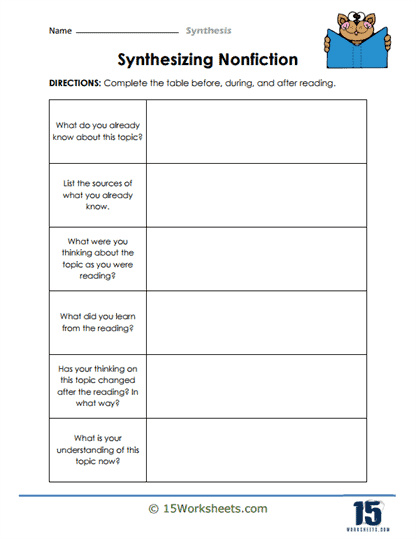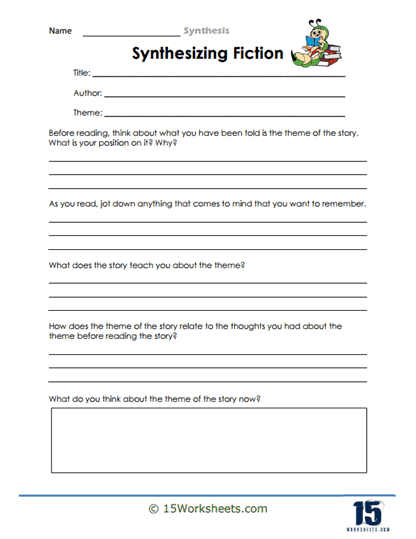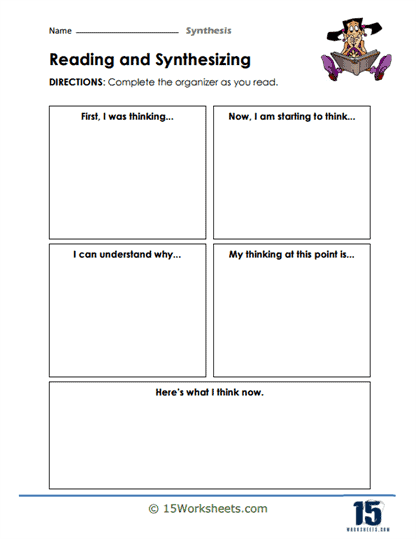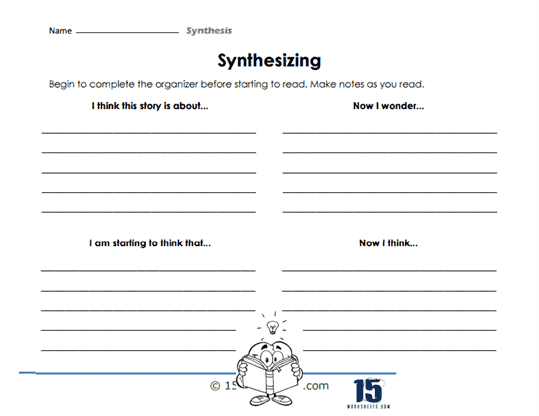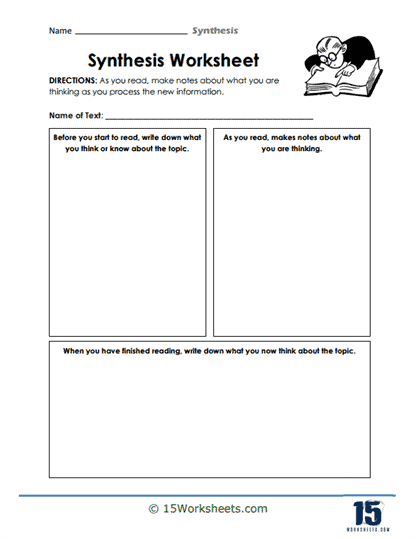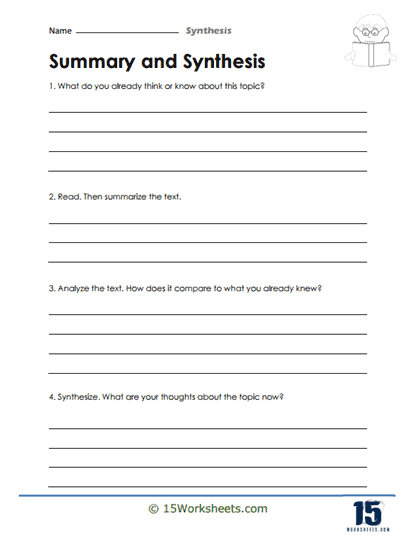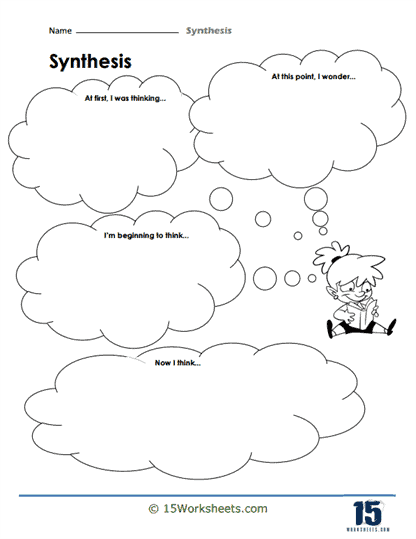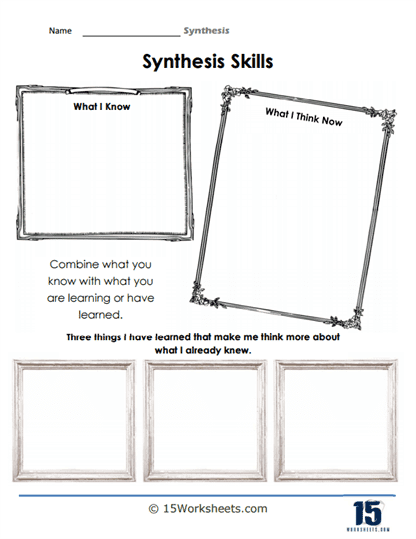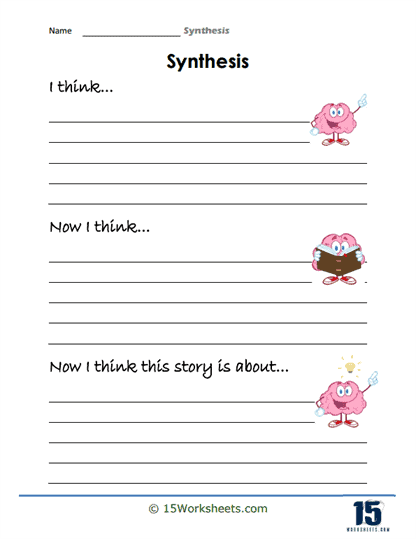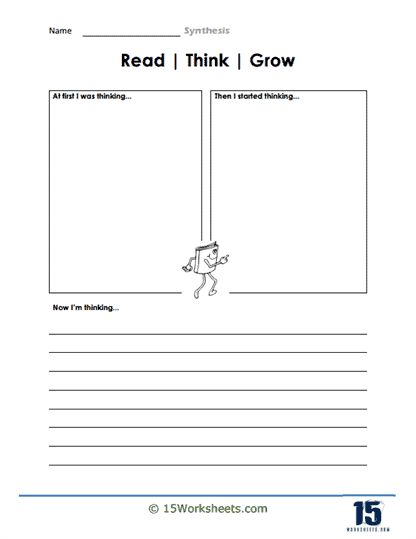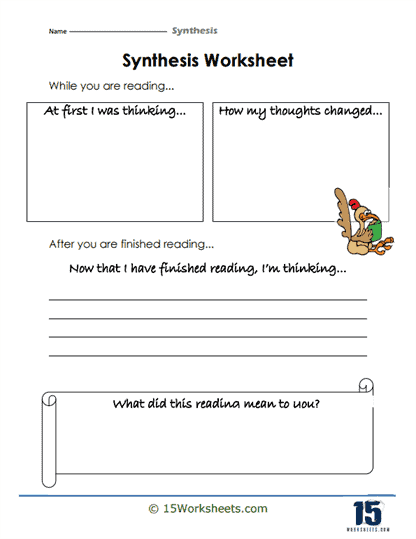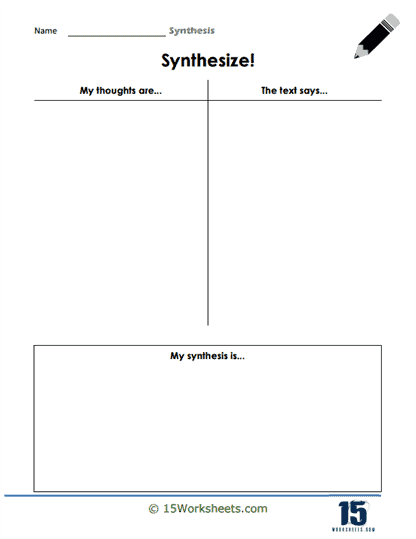Synthesis Worksheets
All About These 15 Worksheets
This series of 15 worksheets offers a comprehensive and engaging resource designed to help students master the art of crafting well-structured and persuasive synthesis essays. These meticulously designed worksheets provide a step-by-step approach to guide students in analyzing multiple perspectives, synthesizing information, and developing compelling arguments.
The writing prompts empower students to become critical thinkers, effective researchers, and skilled communicators. Through a series of thought-provoking exercises, students will learn to examine complex issues, integrate diverse sources, and present cohesive arguments that showcase their ability to understand, analyze, and synthesize information. Through these worksheets, students will:
- Analyze multiple sources, identify common themes or arguments, and integrate them into a coherent and persuasive essay;
- Assess the credibility, reliability, and relevance of sources, helping them make informed decisions about which sources to include in their synthesis essay;
- Identify patterns, connections, and discrepancies, helping them form a comprehensive understanding of the topic;
- Be guided with organizing their essay’s structure;
- And refine their ability to present their ideas in a coherent and compelling manner.
This series equips students with the skills necessary to excel in synthesizing information and presenting complex arguments. By mastering the art of synthesis essays, students will enhance their critical thinking abilities, research proficiency, and persuasive writing skills.
Whether used in English classrooms, advanced writing courses, or as part of college preparatory programs, these Synthesis worksheets provide an invaluable resource for students to develop their analytical thinking, research skills, and written expression.
What Is Synthesis In Writing?
Synthesis is commonly used in formal English academic writing. It is a written argument that utilizes different sources to support a thesis (theory or statement put forward in academic circles to be proved through scientific evidence and analysis of published works). Within the educational domain, a synthesis usually takes the form of an essay, and is known as a “synthesis essay.”
Usage of a Synthesis
While a synthesis is primarily used in academic writing, it has other applications too. Following are some common examples of using a synthesis.
Analysis Papers
Such documents are used to examine different theories that might be related to one another. For instance, an analysis paper might compare different theories of evolution. To do that, the author can make use of a synthesis essay to build their argument.
Argument Papers
Argument papers are used to make a comparison of divergent views, support a coherent claim, etc. For example, an author may write an argument paper on the topic “Is Turnitin an Abuse of Students’ Rights?”
One argument could be that the online plagiarism detection service steals students’ work. On the other side, there’s the claim that students willfully give the permission to have their work archived before using the tool. Here again, a synthesis essay can help build the argument by analyzing both claims from a neutral standpoint.
Research Papers
To create a research paper of high value, you need to incorporate many reliable and accurate sources. For instance, if you’re writing on the social and economic effects of some proposed legislation, you can use a synthesis essay to evaluate multiple sources of published works and build your argument for or against the potential regulation.
Business Reports
Business reports are used to assess contrasting ideas. Authors of such documents try to find ways of blending different concepts together through their analysis.
Tips for Writing a High-Quality Synthesis Essay
Below are some tips that teachers can share with their students to help them write an effective synthesis essay:
- Define your purpose and main idea. This is what your thesis will be based on and the synthesis essay should spell that out clearly.
- Pick the sources you want to use after verifying their authenticity and reliability. Familiarize yourself with them so that you’re well versed to discuss them in connection to your thesis. Simply citing sources without a proper evaluation would weaken your thesis. Moreover, without a proper analysis of previously published works, the audience is likely to misinterpret the information.
- Prepare an organizational plan. Try to find more than a single source for each of the arguments that you plan to make in your thesis. Multiple sources will automatically improve your credibility and increase the weight of your argument. Pay special attention to how various sources might agree or disagree with each other. It’s up to you to carefully evaluate which source makes a more compelling argument and which one has better credibility.
- Make sure to document every source. Note down the page number and author. Also, don’t forget to list the source in the “Cited Sources” or “References” section. This is important because you don’t want anyone to think that you’ve plagiarized the content from somewhere. In fact, proper citation of every source is necessary if you summarize, quote, or paraphrase a previously published piece of work by another writer.

